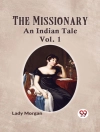Denis Diderot (1713 — 1784) was a French philosopher and writer. Notable during the Enlightenment, he is known for being the co-founder, editor-in-chief, and contributor to the Encyclopédie, along with Jean le Rond d'Alembert. However, one of his most remarkable and provocative works was The Nun. In 1760, Denis Diderot and his friends wrote a series of letters to the Marquis de Croismare. The letters pretended to be from Suzanne Simonin, an illegitimate daughter forced to take religious vows to atone for her mother's guilt. Having escaped the convent, she apparently sought the marquis's help in annulling the vows. In her letters, the nun narrates the details of her forced confinement, describing its effect on her understanding of religion and faith. The novel's reputation as a succès de scandale is largely due to the frank and explicit depiction of the prevalent cruelty in monastic institutions and the narrator's discovery of both eroticism and spirituality. The work once again stirred public opinion when, in 1966, Jacques Rivette's film adaptation was banned for two years. The Nun, deservedly, is part of the famous collection: 1001 Books to Read Before You Die.
เกี่ยวกับผู้แต่ง
Denis Diderot (1713 — 1784) was a French philosopher and writer. Notable during the Enlightenment, he is known for being the co-founder, editor-in-chief, and contributor to the Encyclopédie, along with Jean le Rond d’Alembert. His masterpiece is the editing of the Encyclopédie (1750-1772) or Dictionnaire raisonné des sciences, des arts et des métiers (Rational Dictionary of Sciences, Arts, and Trades), in which he sought to report all the knowledge that humanity had produced up to his time. It took 21 years to be edited and is composed of 28 volumes. Even though the number of literate people was low at the time, it sold successfully, and Denis amassed a small fortune. He continued his work with dedication and enthusiasm despite some opposition from the Catholic Church and established authorities. He also wrote a few theatrical pieces that were not very successful. He stood out particularly in his novels, in which he followed the norms of English humorists, especially Sterne. He wrote: The Nun, Rameau’s Nephew, and Jacques the Fatalist and His Master. He produced several art criticism articles. Diderot was one of the first authors to make a profession of literature but never forgot that he was a philosopher. He was always concerned with human nature, its condition, its moral problems, and the meaning of destiny. An enthusiastic admirer of life in all its manifestations, Diderot did not reduce morality and aesthetics to physiology but situated them in a total human context, both emotional and rational.












